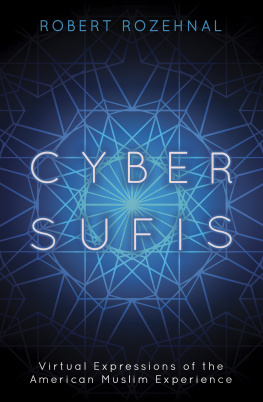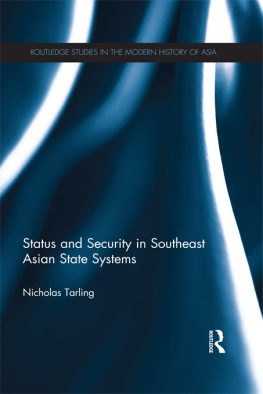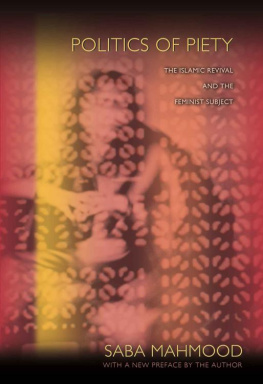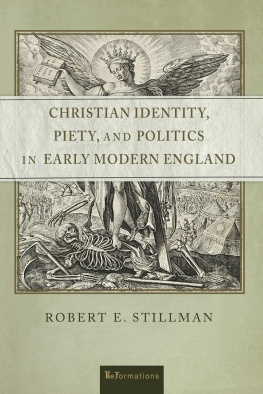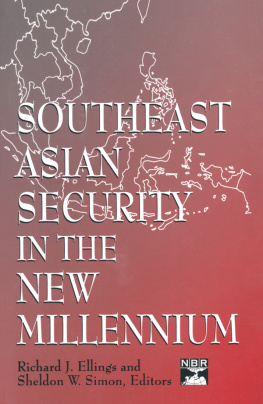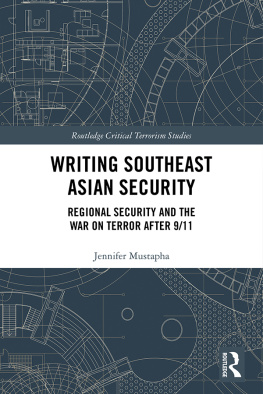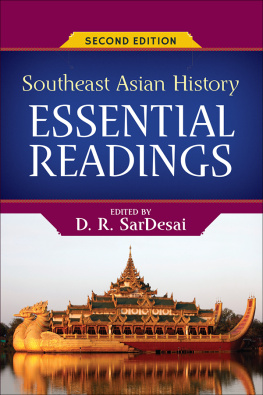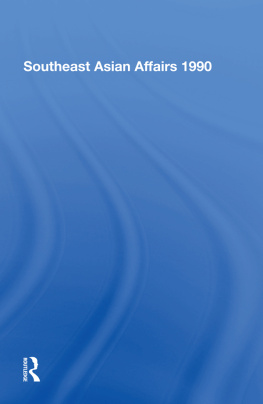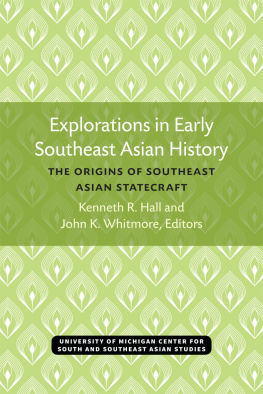Muhamad Ali is Chair of the Middle Eastern and Islamic Studies Program, Associate Professor in the Religious Studies Department, and a member of the Southeast Asia: Text, Ritual, and Performance (SEATRIP) Program at the University of California, Riverside. He earned a BA in Islamic Studies from the State Institute for Islamic Studies, Jakarta; an MSc in Middle Eastern and Islamic Studies from Edinburgh University, Scotland; and a PhD in History from the University of Hawaii at Manoa. Alis publications include Islam and Colonialism: Becoming Modern in Indonesia and Malaya (2015), Bridging Islam and the West: An Indonesian View (2009), and Multicultural-Pluralist Theology (2003), as well as book chapters and journal articles on different aspects of Islam in Southeast Asia. His current projects include a manuscript on Islam and religious freedom and pluralism in Indonesia and another on Indonesian Islam.
Daniel Andrew Birchok is Assistant Professor of Anthropology at the University of Michigan-Flint. He holds a PhD in Anthropology and History from the University of Michigan. He has carried out extensive ethnographic and archival research in Indonesia, especially the province of Aceh. His research interests include genealogical authority, everyday ethics, the Islamic temporal imagination, and the continuing importance of forms of Islamic practice that Indonesians widely understand as premodern. His scholarly articles have appeared in Asian Studies Review, Comparative Studies in Society and History, and the Journal of Contemporary Religion. He is currently working on a book manuscript about a Syattariyah Sufi order on Acehs west coast titled, The Pasts of Habib Abdurrahim: Genealogical Authority, Old Islam, and the Islamic Temporal Imagination.
Timothy P. Daniels is Professor of Anthropology at Hofstra University. He holds an MA and PhD in Anthropology from the University of Illinois at Urbana-Champaign. He has conducted extensive ethnographic research in Malaysia and Indonesia. His research interests include urbanization, nationalism, globalization, performance, religion and politics, and Islamic law. Daniels is the editor of Performance, Popular Culture, and Piety in Muslim Southeast Asia (2013) and Sharia Dynamics: Islamic Law and Sociopolitical Processes (2017). He is also the author of numerous articles and three books: Building Cultural Nationalism in Malaysia: Identity, Representation, and Citizenship (2005); Islamic Spectrum in Java (2009); and Living Sharia: Law and Practice in Malaysia (2017).
Anna M. Gade is a Vilas Distinguished Achievement professor in the Gaylord Nelson Institute for Environmental Studies at the University of Wisconsin at Madison, where she teaches core courses in global environmental humanities. She holds a PhD in the History of Religions from the University of Chicago, specializing in Islam, and is author of Introduction to the Quran (Oxford: Oneworld, 2010). Since her first book appeared in 2004 (Perfection Makes Practice: Learning, Emotion and the Recited Quran in Indonesia [Honolulu: University of Hawaii Press]), Gades research has focused on field-based study of Muslim religion, ethics and social change in island, peninsular and mainland South East Asia, especially Indonesia. Her forthcoming book, Muslim Environmentalisms: Religious and Social Foundations, is expected to be published in 2019 by Columbia University Press.
James B. Hoesterey is Assistant Professor in the Department of Religion at Emory University. He holds a PhD in Anthropology from the University of Wisconsin-Madison and held postdoctoral fellowships at Stanford University, Lake Forest College, and University of Michigan. His research focuses broadly on Islam, media, and politics. His first book, Rebranding Islam: Piety, Prosperity, and a Self-help Guru (2016), chronicles the rise and fall of one of the worlds most popular Muslim televangelists, Abdullah Gymnastiar, and was awarded Honorable Mention (runner up) for the Clifford Geertz Book Prize by the Society for the Anthropology of Religion (2016). His current research examines public diplomacy, soft power, and the making of moderate Islam. Hoesterey served as Chair of the Indonesia-Timor Leste Studies Committee (20112015), and currently serves as Secretary for the American Institute for Indonesian Studies (AIFIS) and board member for the Commission on Visual Anthropology.
Thomas Pepinsky is Associate Professor in the Department of Government at Cornell University. He specializes in comparative politics and international political economy, with a focus on emerging markets and a special interest in Southeast Asia. He is the author, most recently, of Piety and Public Opinion: Understanding Indonesian Islam (2018, with R. William Liddle and Saiful Mujani), and his work also appears in the American Journal of Political Science, International Studies Quarterly, Journal of Democracy, World Development, World Politics, and other venues. Currently, he is working on issues relating to identity, politics, and political economy in comparative and international politics. He is a member of the steering committee of the Association for Analytical Learning on Islam and Muslim Societies (aalims.org), and recently helped to found the Southeast Asian Research Group (seareg.org) in order to highlight the best new contemporary research on Southeast Asian politics in North America.
Anne K. Rasmussen is Professor of Ethnomusicology and Bickers Professor of Middle Eastern Studies at the College of William and Mary where she also directs the William and Mary Middle Eastern Music Ensemble. Her research encompasses music of the Middle East and Islamicate world, as well as multiculturalism in the United States. Recipient of two Fulbright Fellowships for research in Indonesia, and a Sultan Qaboos Cultural Center Fellowship for research in Oman, her award-winning publications include numerous articles and chapters, and three books: Womens Voices, the Recited Quran, and Islamic Music in Indonesia (2010); Divine Inspirations: Music and Islam in Indonesia, coedited with David Harnish (2011); The Music of Multicultural America: Performance, Community, and Identity in the USA, coedited with Kip Lornell (1997, 2nd revised, expanded edition, 2016). She has been elected to the board of the Society for Ethnomusicology three times, including as president (20152017).
Robert Rozehnal is Associate Professor in the Department of Religion Studies and the founding director of the Center for Global Islamic Studies at Lehigh University. He holds a PhD in Islamic Studies from Duke University and an MA in South Asian Studies from the University of Wisconsin-Madison. He has traveled widely, with extended periods of study and fieldwork in Pakistan, India, Egypt, Iran, Turkey, and Malaysia. In addition to the history and practice of Sufism in South Asia, his research and teaching interests include ritual studies, postcolonial theory, religious nationalism, digital religion, and globalization. He is the author of numerous articles and two books:




